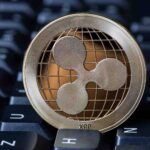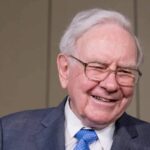In an X post made on the morning of November 2, the prominent investor and author of the best-selling personal finance book ‘Rich Dad Poor Dad,’ Robert Kiyosaki, proclaimed that the ‘banking crash has begun’ in the U.S.
In the same post, the author also warned that commercial real estate markets and bonds are ‘next to go.’
The announcement was made in reference to Oklahoma’s First National Bank of Lindsay, which collapsed late in October as the regulators intervened after they detected signs of fraud.
Though the immediate crisis was quickly averted as another small lender – First Bank & Trust Co. – the failure of the bank stung depositors as it was revealed the U.S. Treasury would not automatically step in to prevent losses on deposits that exceed the $250,000 Federal Deposit Insurance Corporation (FDIC) cap.
By press time on November 4, however, there is a possibility that the expected losses will be diminished, depending on the funds raised through the sale of the failed bank’s assets.
Is Kiyosaki right in concluding the bank crisis has started?
At the surface level, Kiyosaki’s proclamation of a ‘banking crash’ appears overblown, considering the bank that failed had only a single office, $10 million in equity, under $100 million in deposits, and just over $105 million in assets.
Still, the failure comes after months of fear and rumors that American banking corporations might not be as happy as the public would like.
In July, a report by the Office of the Comptroller of the Currency indicated that half of the examined banks have poor safeguards against risk, with the primary concerns coming from improper procedures in cases of employee errors and insufficient cybersecurity.
Other concerns in 2024 came from the skyrocketing unrealized losses faced by lenders, which rocketed above $500 billion by early June of the year.
Additionally and serving both as a point of comfort and a reason for fear, an imminent banking crisis in the U.S. has been rumored for years and was a particularly prominent topic in the first half of 2024 when multiple regional banks collapsed in a relatively short time frame.
Bank crashes surge from 2022 but remain below historical levels
The discussion was reignited earlier in 2024 when Republic First collapsed, but no broader crash materialized by press time on November 4 as a result of any of these failures.
Finally, though the small bank crashes can be considered a canary in the coal mine, historical records show that the number of annual failures has not increased substantially,
For example, seven banks collapsed in 2023 and 2024, eight were closed in 2019 and 2020, and another eight in 2017 alone. On the other hand, 2024 has not been the best year of the last decade for these corporations, as no banks crashed in 2018, 2021, or 2022.
Can Kiyosaki’s predictions be trusted?
Another reason why Kiyosaki’s X post can be seen as overdramatic is that the author has a history of fearmongers.
For well over a year, the prominent investor has been warning of an imminent recession, hyperinflation, and a deluge of other financial calamities. He has simultaneously been promoting his favorite investments – Bitcoin (BTC), gold, and silver being the chief among them.
Still, despite the warnings of an imminent crisis that have all been wrong so far, Kiyosaki will eventually be correct – unless there is a profound change in the typical capitalist economy’s cycle between ‘booms’ and ‘busts.’
Furthermore, his recommendation to buy gold, silver, and BTC has been correct, as all three assets have seen remarkable growth – ranging from about 30% to almost 60% – in 2024.
Featured image via Ben Shapiro’s YouTube.









